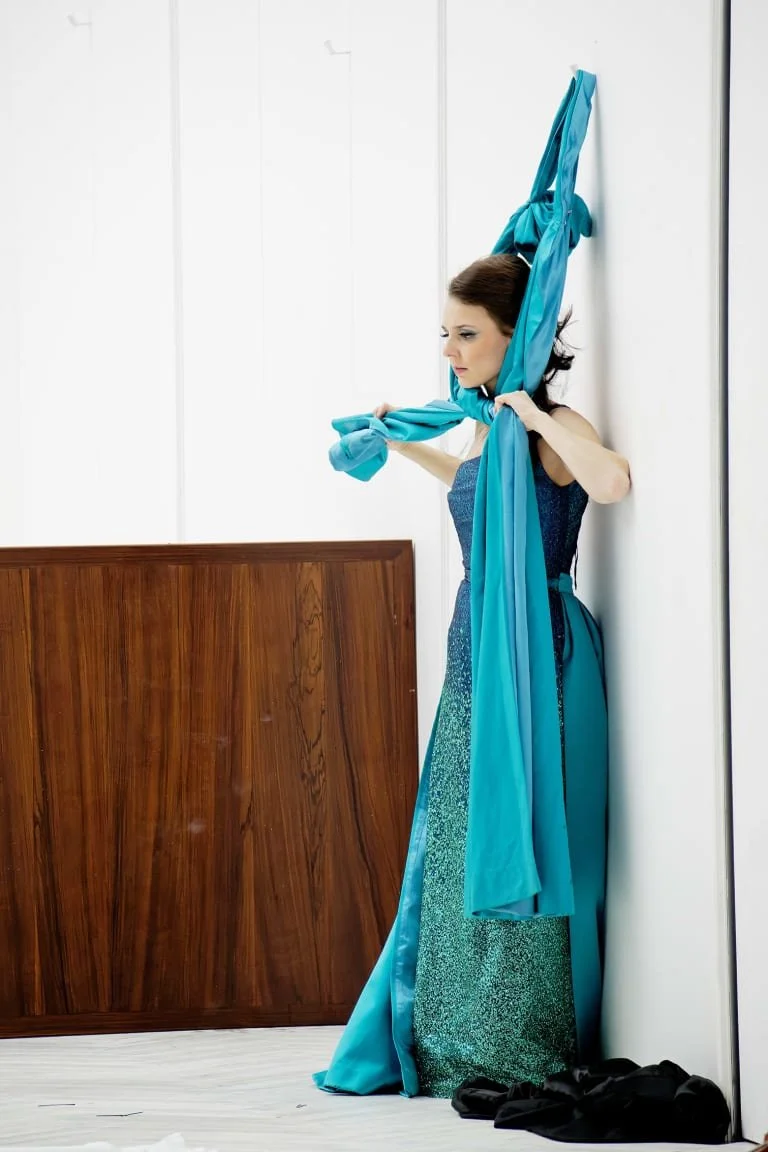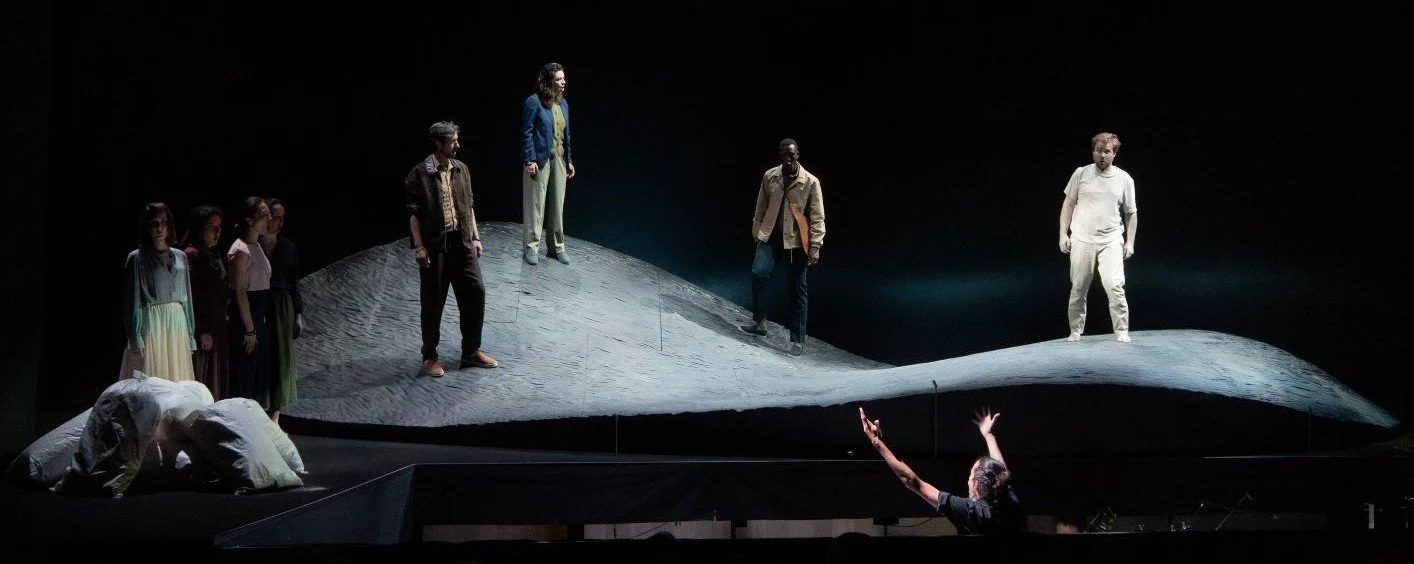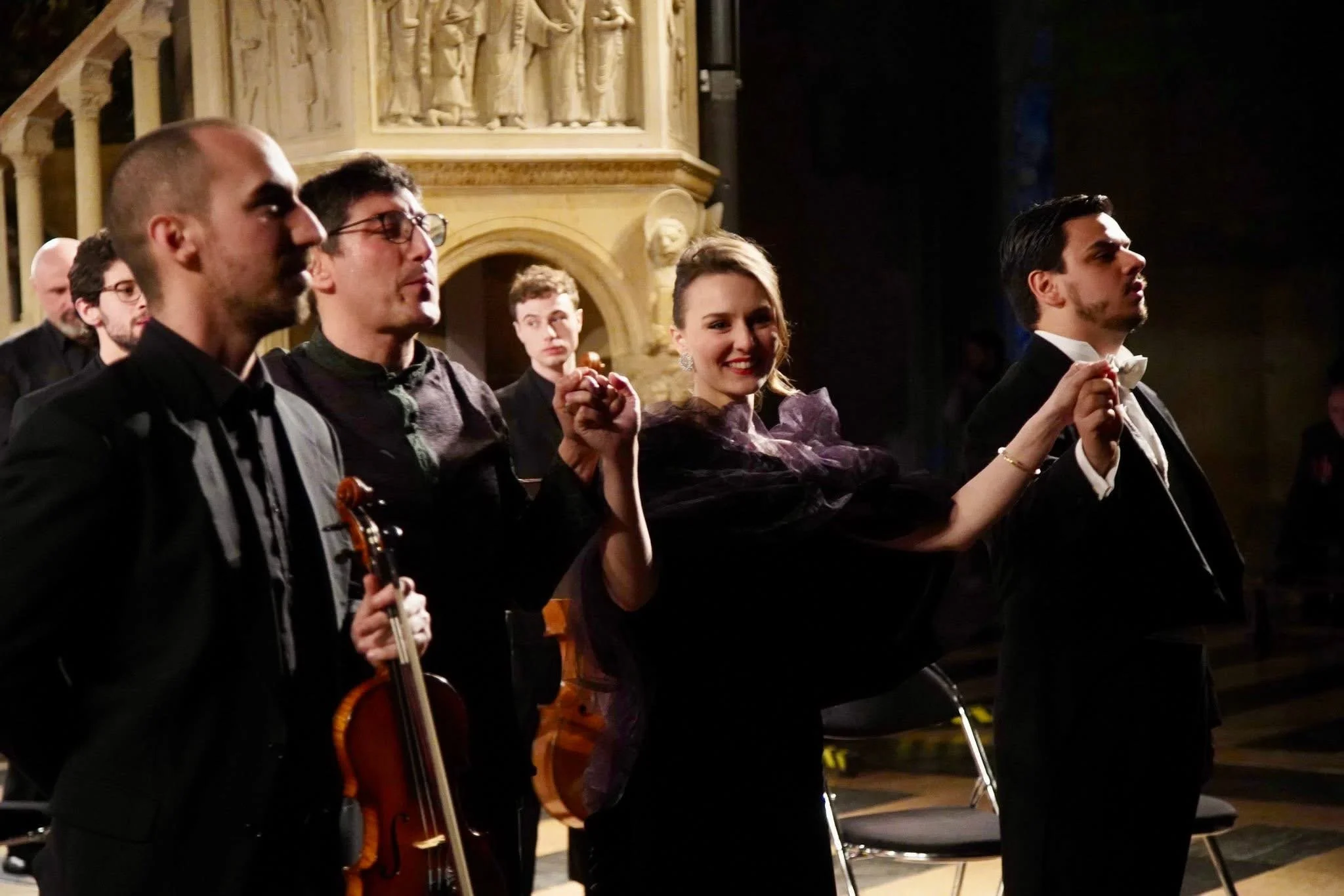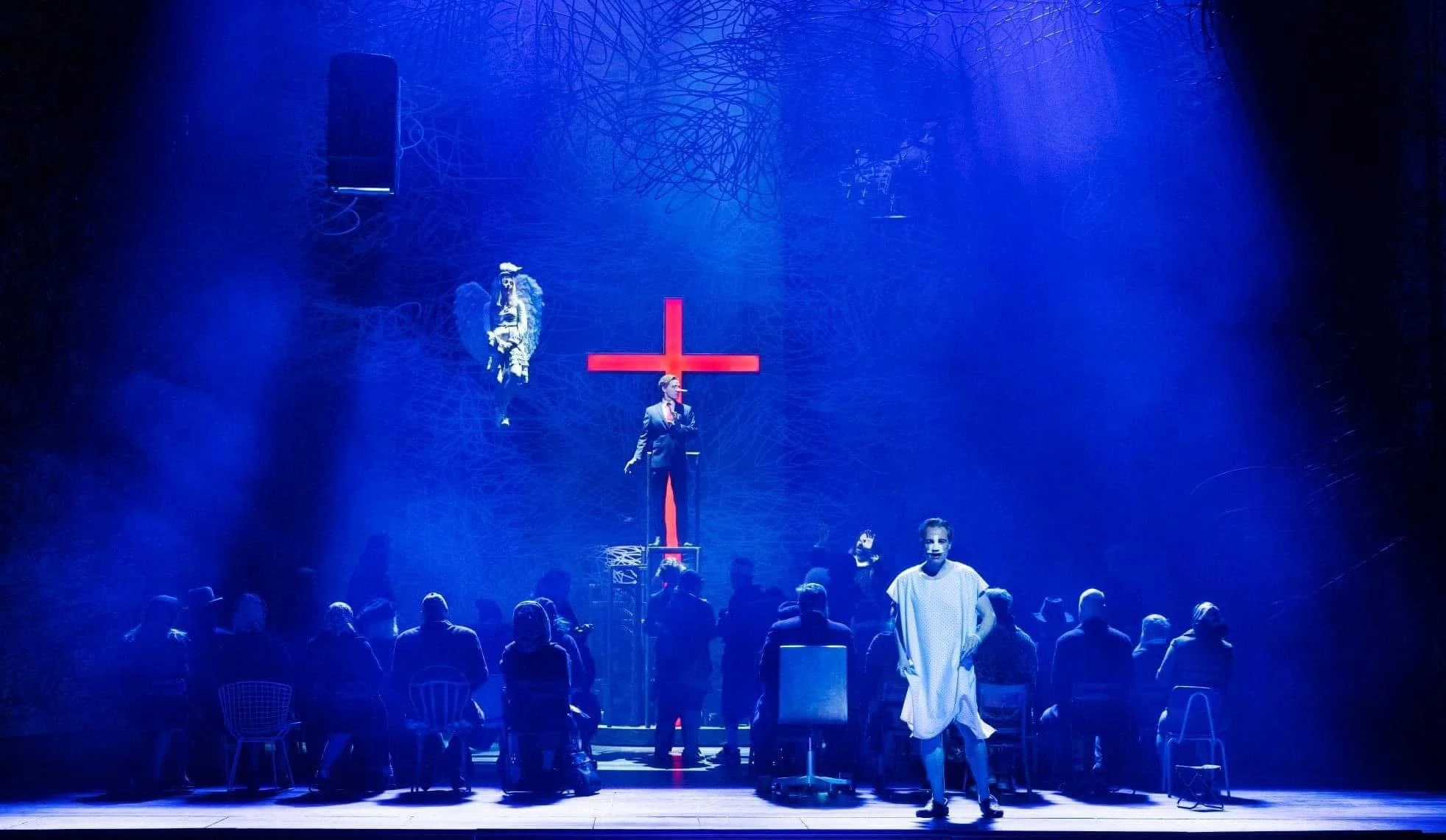
THE EXTERMINATING ANGEL
PARIS OPERA
-
“The marvellous Leticia of Gloria Tronel”
-
“There are too many soloists to name, though particularly memorable were...Gloria Tronel effortless in some of the highest notes ever written for a soprano…”
-
“Gloria Tronel (even more stratospheric, you’ll die)”
-
“The terrifyingly high range of Gloria Tronel”
-
“When the sopranos Jacquelyn Stucker and Gloria Tronel stand out for their ease and clarity (and, in the case of the latter - despite her tiny frame - for her laser bright high notes)”
-
“Her voice climbs and climbs, it seems without limit. In one those dramatic abysses so favoured in opera, Gloria Tronel plays the singer Leticia Maynar, one of the characters in The Exterminating Angel, currently playing at the Opera Bastille under the baton of its composer, Thomas Ades. The tessitura of her coloratura mounts towards stratospheric high notes, like a rocket through the layers that separate her from terra firma”
-
”Gloria Tronel (Leticia Meynar) launches herself with panache into a lethal tessitura that is composed for the most part of very high notes (in the story, she is a singer leaving a performance of Lucia di Lammermoor), bringing a real poetry to her last act aria”
-
“… Tronel brought a sense of distinction and uniqueness to the night. Her vibrato made her look different than anyone else—she clearly was a diva not meant to be fully understood”
-
“It may not be necessary to detail the interventions of the twenty or so singers gathered on stage, but it is worth highlighting the performance of Gloria Tronel, a radiant soprano embodying the diva Leticia Maynar”
-
“The other musician of the evening, the singer Leticia Maynar, whose performance of Lucia di Lammermor the guests have just enjoyed—we remain in the context of madness - is given a redoubtable light soprano role with sparkling high notes that is assumed with brio by Gloria Tronel”
-
“But the prize for the evening’s high notes by rights goes to the coloratura Gloria Tronel (in the role of the diva Leticia Meynar) to whom Ades gifts an A6 that the Franco-Romanian sings with brio”
-
“…and the most notorious part of all, Leticia, sung by the coloratura Gloria Tronel, who dispatches the opening high A and hovers within the role’s stratospheric tessitura with grace”
-
“Special mention for the soprano's high notes, which soar effortlessly an A6 above the tangled maelstrom of the other solo voices… and especially Gloria Tronel's portrayal of Leticia, seamlessly embodying the character as both a desired object and a bird torn by high notes in an invisible cage crafted by the director”
-
“Each of the sopranos possesses a different profile, foremost among them the incredible Gloria Tronel, who lavishly delivers the high notes of her coloratura singer character”
-
“The Franco-Romanian soprano Gloria Tronel fascinates with her brilliance and bold way of interpreting the terrifying tessitura that the composer has reserved for the character of Leticia Maynar, a singer reminiscent of a portrayal in Donizetti's Lucia di Lammermoor”
-
“Equally in Leticia, the opera singer invited to the reception, we discover Gloria Tronel who excels in the ultra-high register, and proves herself moving in the aria that the guests ask her to sing in the third act”
-
“And it's impossible to be insensitive to the extremely high, supernatural voice of Gloria Tronel, who is absolutely charming. The soprano (…) brings Leticia Maynar to life with facetious agility. The strangeness of the sounds she produces resonates with the Mathenot waves, evoking the ghostly voices of the Exterminating Angel”
-
“Transported like an idolised icon, Gloria Tronel triumphs as a coloratura with surreal high notes”
-
“With bouts of dementia, bewitchment, fever, the manor surrounded by police, the presence of sheep and then a teddy bear, this community transformed into wild beasts is only saved from disaster by the intervention of the singer Laetita, whose high-pitched singing (Gloria Tronel is unsinkable) ends up shattering the eardrums”
JOB, LE PROCÈS DE DIEU
LA CITÉ BLEUE GENÈVE
-
“Gloria Tronel impresses with a striking yet angelic voice, marked by crystal-clear projection. Oscillating between heartfelt intensity and finely controlled phrasing, she offers an expressive and flexible performance, carried by a luminous timbre of aerial charm, leaving the audience captivated by her precision and musicality”
-
“Gloria Tronel (…) seizes us with high notes as fine as the eye of a needle and as precise as its point. Her voice is at once gentle and incisive, airy in every circumstance, endowed with a natural charm”
-
“…the clarity of her voice, with crystalline accents, sustained notes shimmering in a controlled vibrato, and a secure timbre, enchants the audience”
-
“…the stratospheric and radiant soprano of Gloria Tronel”
-
“Gloria Tronel is a coloratura soprano with stratospheric high notes, combining confidence with a fresh vocal quality”
REQUIEM DE FAURÉ
FONDAZIONE TEATRI DI PIACENZA
-
“TRONEL in the PIE JESU, which she performed with extraordinary and gentle expressivity”
REQUIEM FOR MY FRIEND
ENESCU FESTIVAL
-
“Also to be highlighted are the interventions of soprano Gloria Tronel, who, with that sobriety that ends up being more expressive than dramatic excesses, provided us with very beautiful moments, both solo and in her duets with Alexandru Costea, where the timbral differences between them created very interesting effects.”
CELINE, R. HARVEY
SLOVENIAN CHAMBER OPERA
-
“Mono opera Céline, which was composed a couple of years ago by Richard Harvey, a composer of Hollywood proportions, was vividly brought to life by the French soprano Gloria Tronel.
A recent debutante of the Paris National Opera, Tronel shone in Linhart Hall in a role that seemed tailor-made for her—not only from a human and emotional perspective, but also in terms of technical demands. She easily identified with the role of the Jewish émigré, an important figure of the Dadaist movement, who was historically overshadowed and betrayed by her colleagues and mentors.
With supple and seamless transitions between registers, her piercing, predominantly expressive soprano pushed us into a range of emotional states. She showed particular mastery over her broad vibrato, which she could, at the ends of phrases, narrow and quicken, slow down, or even suddenly cut off—breathing straight into the emptiness of silence. In addition, she moved us deeply with the more delicate, lyrical nuances of her finely crafted coloraturas.
The fullness of her voice carried even in the extreme upper ranges, flowing warmly over the audience, especially when she entered from the back of the hall. Most striking of all was her acrobatic leap across a wide interval into the heights at a crucial dramatic turning point of the opera—when the character resigns herself to her tragic fate, while at the same time holding fast to the belief that history, with time, will recognize the true value of her writing.”
TRIBUTE TO GEORGES ENESCO
PARIS
-
“As for the youngest artist, Gloria Tronel, winner of the Enesco Competition and Grand Prix Opéra 2023, who had impressed with her high notes in the new production of The Exterminating Angel at the Paris Opera in 2024, she begins by savoring the dense, well-timbered, and focused brightness of her voice, with a sprightly touch that evokes the character of Manon, and then immerses herself in the spirit of the text with a very delightful interpretive joy.”
THE NOSE
ROYAL DANISH OPERA
-
“Gloria Tronel from the Young Artists Program shows great talent, first as the barber's nymphomaniac wife and then as a blasé angel, bored on a trapeze under the cathedral's vaults”
-
“There are many talented soloists. In particular, I want to highlight Gina Gloria Tronel, who both looks and sings like an angel in the show's second act”
-
“The part as the barber's wife, Praskovja Osipovna was well occupied by Gina Gloria Tronel, who also sang the female voice beautifully, throwing an almost magical light into the evocative scene of the Kazan Cathedral”
GALA CONCERT
AALBORG SYMPHONY ORCHESTRA
-
“Soprano Gloria Tronel burned through with her expressive colatura soprano, which as a sharp instrument managed Meyerbeer's light lark trills and the more expressive tones in Delibes "Air des clochettes" from the opera "Lakmé". She was at her best in the aria "Glitter and be Gay" from Bernstein's "Candide", which was a pure tour de force in technique and musicality, covering the entire range of expression”
GUILLAUME TELL
TELLSPIELE INTERLAKEN
-
“Gloria Tronel (Jemmy) succeeds in turning the arena into an opera with dramatic expression, a crystal-clear soprano and an unstrained generosity in the voice”
-
“The French soprano, Gloria Tronel, sang Tell's son Jemmy - a cheeky, self confident boy - as clear as a bell”
-
“Tronel plays Tell's son, Jemmy, with a lot of feeling”








